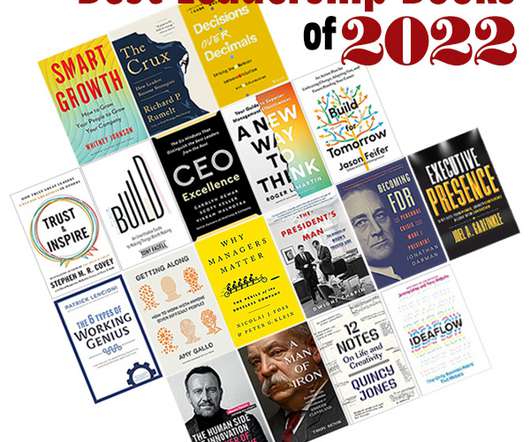From Clashes to Collaboration – 7 Steps to a Thriving Team Culture After a Corporate Merger
Great Results Team Building
APRIL 10, 2024
Align strategic goals with cultural direction – will the new culture be more risk-taking or conservative, hierarchical or flat? Your goal isn’t a mushy mix, but a refined taste of excellence. Bring Everyone Together: Craft a Cohesive Story Focus on common goals to overcome the initial hurdles of integration.




























Let's personalize your content